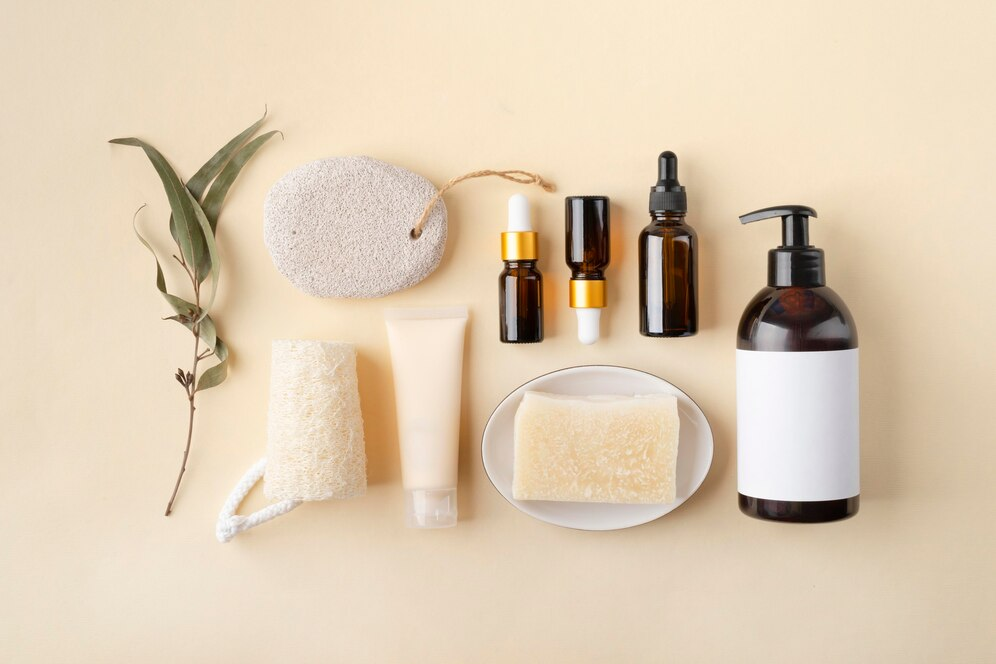
Have you ever looked in the mirror and wished your skin looked a little brighter or simply more radiant? The good news is achieving healthy, glowing skin is absolutely within reach! It all boils down to understanding a few key facts about how skin functions and what it needs to thrive.
Healthy skin plays a significant part in our overall well-being and confidence. Yet, despite its importance, navigating the world of skincare can feel overwhelming. Countless products line the shelves, each promising a miracle cure for wrinkles, blemishes, or dullness. However, the truth is, achieving a radiant complexion does not require a complicated or expensive routine.
With numerous skincare products and techniques flooding the market, it is crucial to distinguish facts from myths to achieve optimal skin health.
Essential skincare products and their uses
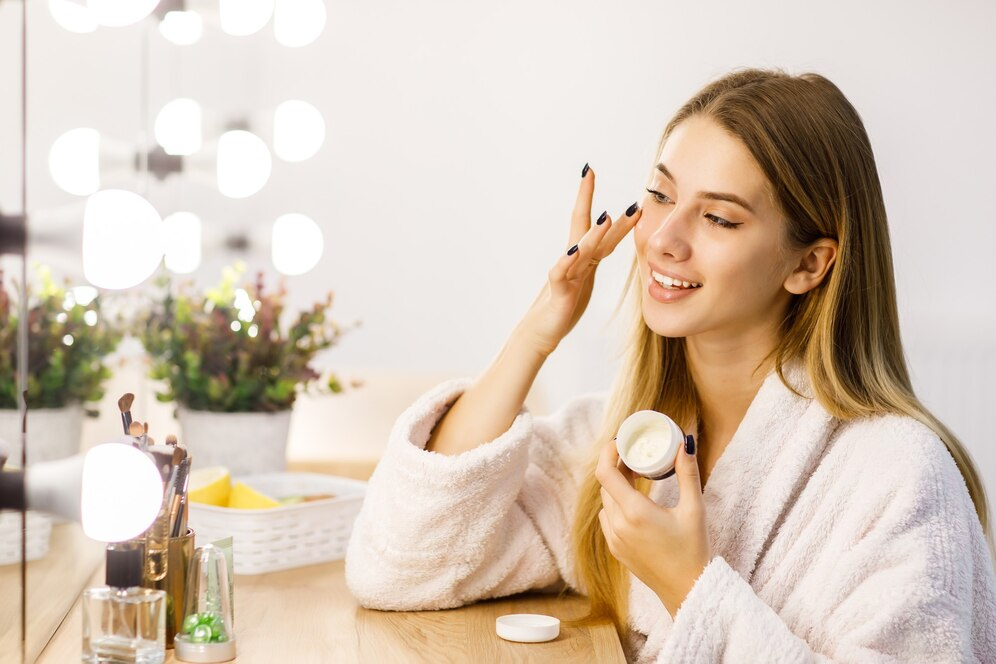
The world of skincare can be overwhelming, with countless products promising a youthful, blemish-free complexion. However, a healthy glow doesn’t require a complicated routine. Mastering a few essential products and understanding their uses for the skin leads to achieving and maintaining radiant skin.
1. Cleanser
The foundation of any good skincare routine is a gentle cleanser. This removes dirt, oil, and makeup buildup that can clog pores and lead to breakouts. Choose a cleanser based on your skin type:
Foaming cleansers are suitable for oily or acne-prone skin as they help control excess oil.
Cream or lotion cleansers are ideal for dry or sensitive skin as they provide hydration while cleansing.
Gel cleansers work well for combination skin, offering a balance between hydration and oil control
2. Toner
Toner is a liquid skincare product often used after cleansing and before applying moisturizer. It helps restore the skin’s pH balance after cleansing and prepare it for subsequent skincare products. It also removes any remaining traces of dirt or makeup and can provide additional hydration or address specific concerns such as acne or dullness.
Some toners contain ingredients that help improve the skin’s ability to absorb subsequent skincare products, like moisturizers and serums.
3. Serum
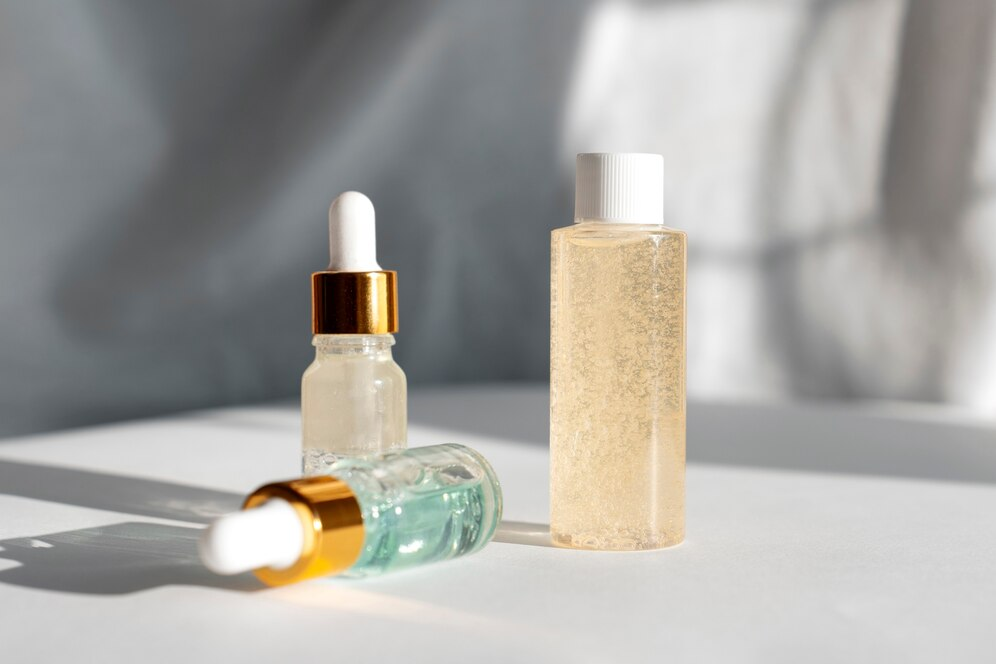
Serums are highly concentrated formulations that target specific skin care concerns such as wrinkles, dark spots, or hydration. They contain active ingredients like vitamins, antioxidants, or peptides that penetrate deeply into the skin for maximum effectiveness. Below are some of the types of serums and their uses:
Hydrating Serums
Hydrating serums are formulated with ingredients like hyaluronic acid, glycerin, or aloe vera to replenish moisture, plump the skin, and restore hydration levels. These serums are ideal for dry or dehydrated skin types and can help improve the skin’s texture and elasticity.
Brightening Serums
Brightening serums contain ingredients such as vitamin C, niacinamide, or licorice extract, which help fade dark spots, hyperpigmentation, and discoloration, resulting in a more even-toned and radiant complexion. These serums are beneficial for all skin types and can help restore luminosity and clarity to the skin.
Anti-Aging Serums
Anti-aging serums are formulated with ingredients like retinol, peptides, or growth factors, which help stimulate collagen production, reduce the appearance of fine lines and wrinkles, and improve skin firmness and elasticity. These serums are suitable for mature or aging skin and can help rejuvenate and revitalize the complexion.
4. Moisturizer
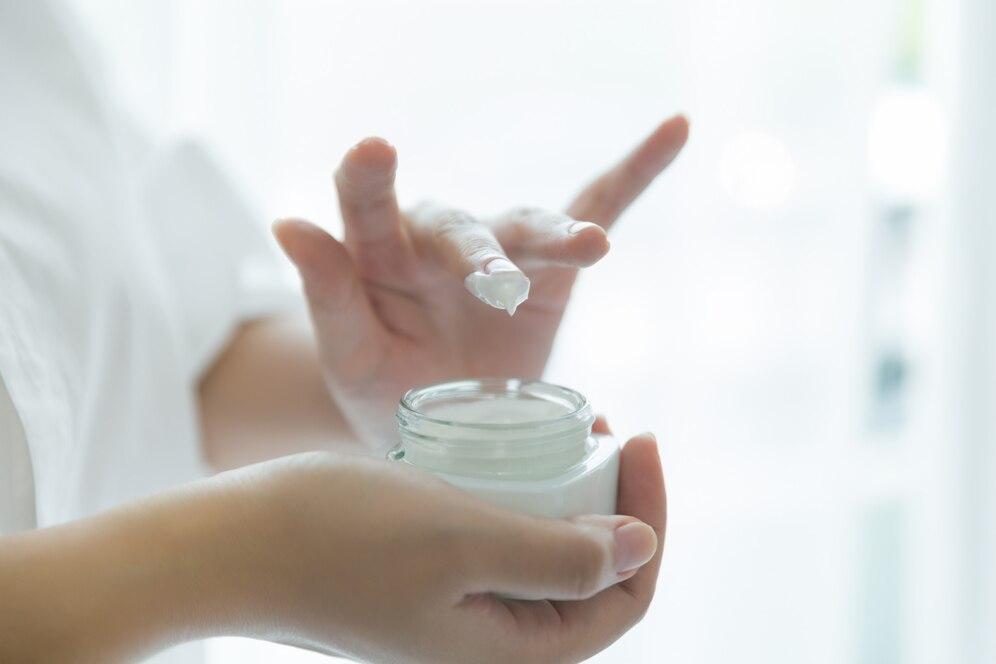
Regardless of your skin type, a good moisturizer helps lock in hydration, keeping your skin plump and healthy. Look for ingredients like hyaluronic acid, ceramides, and glycerin, which work together to hydrate and protect the skin’s barrier. Like cleansers, you need to be aware of what skin type you have:
Lightweight, oil-free moisturizers are suitable for oily or acne-prone skin.
Rich, emollient moisturizers are ideal for dry or mature skin.
Gel or water-based moisturizers work well for combination or sensitive skin.
5. Sunscreen
Sunscreen is arguably the most crucial skincare product. Sun damage is a major contributor to premature aging, wrinkles, and even skin cancer. Prolonged exposure to UV radiation is a leading cause of skin cancer, including melanoma, the deadliest form of skin cancer.
Wearing sunscreen daily protects us from harmful UV rays and reduces the risk of developing skin cancer. Sunscreen forms a barrier on the skin’s surface that absorbs or reflects UV radiation, preventing it from penetrating the skin and causing damage.
To maximize the effectiveness of sunscreen, apply a generous amount to all exposed skin areas, including the face, neck, ears, and hands, at least 15 minutes before sun exposure. Reapply sunscreen every 2 hours, or more frequently if sweating or swimming, and use water-resistant formulas for prolonged outdoor activities.
6. Eye Cream
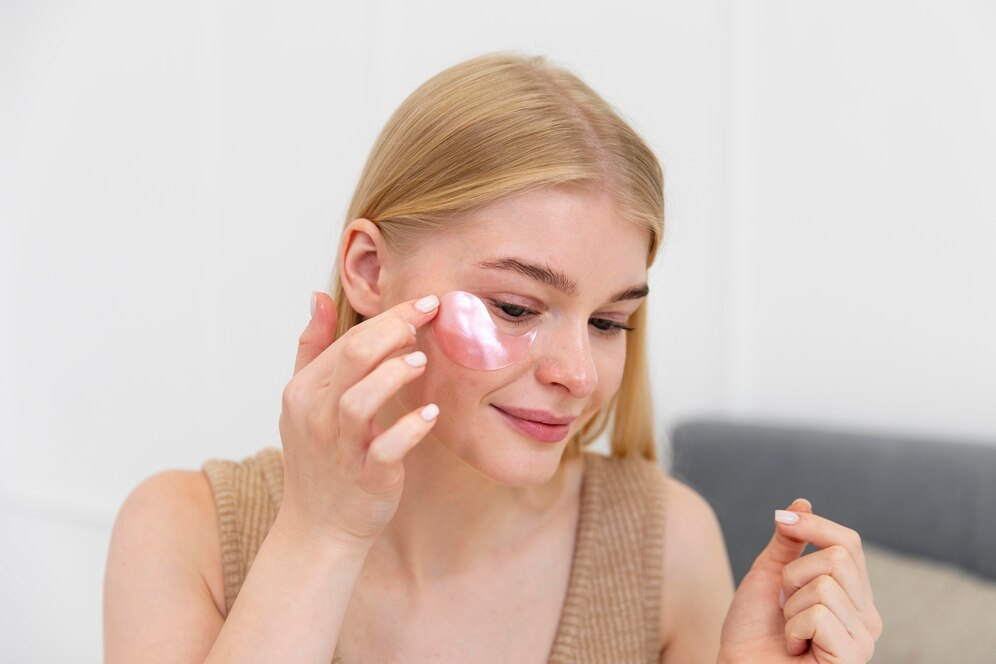
Eye creams are formulated for the delicate under-eye area, targeting puffiness, dark circles, and fine lines. They provide hydration and nourishment to this sensitive area, helping to keep it smooth and youthful.
7. Spot Treatment
Unlike cleansers or moisturizers meant for your entire face, spot treatments are applied directly to the affected area. This delivers a higher concentration of active ingredients exactly where you need them.
Many spot treatments contain ingredients like salicylic acid, benzoyl peroxide, or sulfur that help reduce inflammation and redness associated with pimples. These active ingredients can also help unclog pores, kill bacteria contributing to acne, and promote faster healing of blemishes.
Note that spot treatments are best for treating existing blemishes, not preventing them. For overall acne prevention, a good skincare routine with regular cleansing, exfoliation, and moisturizing is crucial.
8. Exfoliator
Exfoliators remove dead skin cells that can make your skin appear dull and rough, unclog pores, and promote cell turnover, resulting in smoother, brighter skin. However, remember to be gentle. Over-exfoliation can irritate the skin. There are two types of exfoliators:
Physical exfoliators contain granules or particles that manually slough off dead skin cells.
Chemical exfoliators use ingredients like alpha hydroxy acids (AHAs) or beta hydroxy acids (BHAs) to dissolve dead skin cells and unclog pores.
Opt for a chemical exfoliator for sensitive skin and a physical exfoliator for occasional deeper cleansing on normal or oily skin.
Skincare facts you need to know
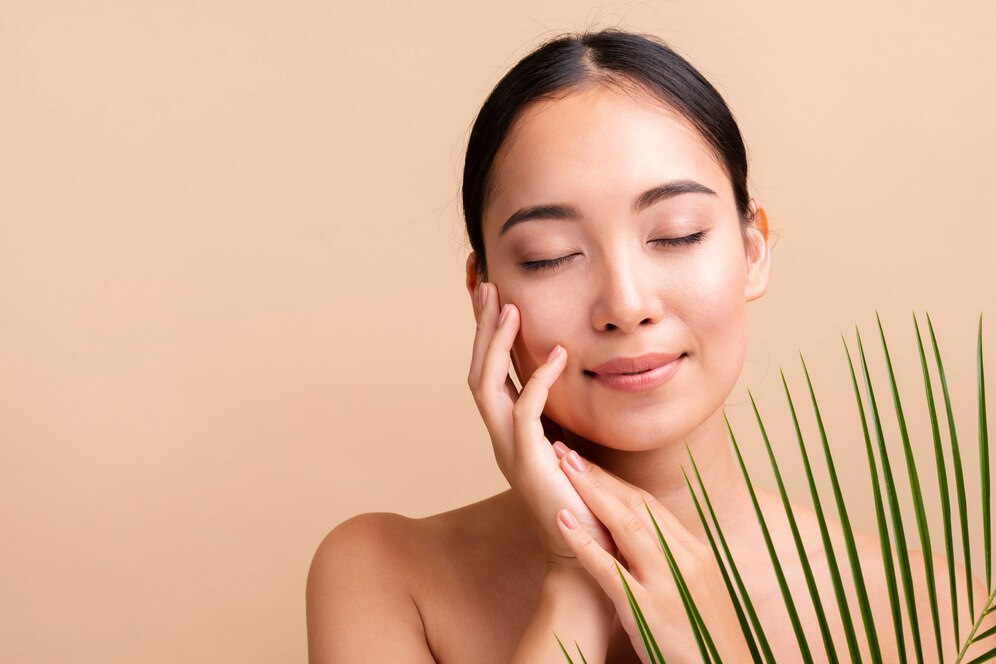
Here are some essential skincare facts that everybody should know:
Sun protection is non-negotiable
UV radiation from the sun is a significant contributor to various forms of skin damage, including premature aging, wrinkles, fine lines, sunburn, and hyperpigmentation. It is also the leading cause of skin cancer, including melanoma, the most deadly form of skin cancer.
By shielding our skin from UV rays, we can minimize the risk of developing these adverse effects and maintain a healthier, more youthful complexion.
Understand your skin type
Understanding your skin type is the foundation of any good skincare routine. It essentially involves figuring out how your skin naturally produces oil and moisture. You often base the product you will use on your skin type. This is vital, especially if you have sensitive skin.
Different skin types have unique characteristics and require specific care. Understanding your skin type allows you to select the most appropriate skincare products and treatments to address your individual concerns. For example, those with oily skin may benefit from oil-free moisturizers and gentle exfoliants to control excess oil production, while individuals with dry skin may require richer, hydrating formulas to replenish moisture and improve skin texture.
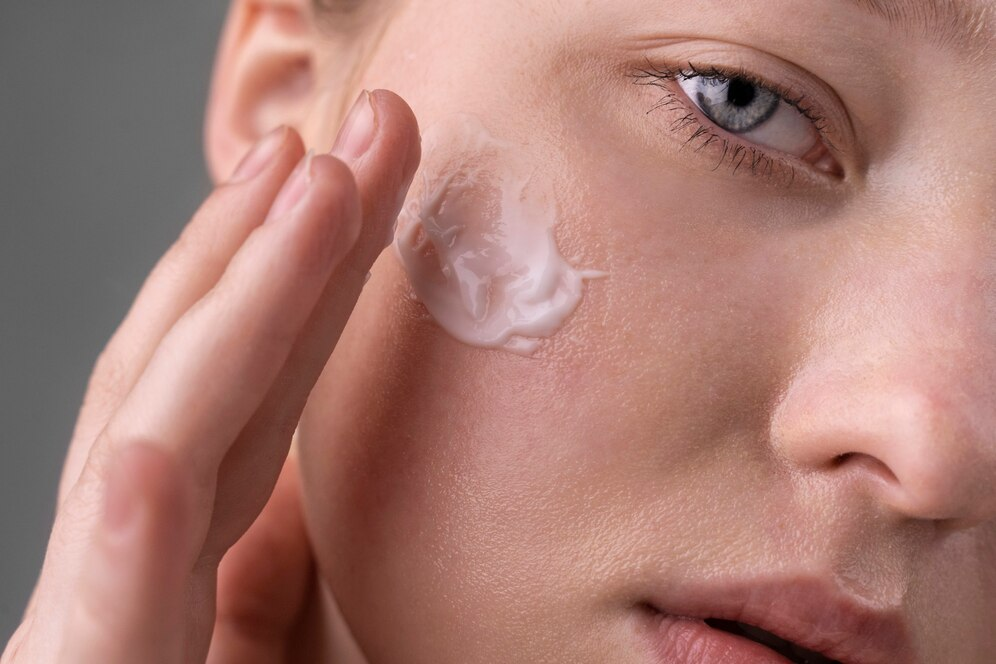
There are five primary skin types:
1. Normal Skin
Normal skin is well-balanced, neither too oily nor too dry. It has a smooth texture, small pores, and few imperfections. Individuals with normal skin often require minimal skincare maintenance but still benefit from hydration and sun protection.
2. Oily Skin
Oily skin produces excess sebum, leading to a shiny or greasy appearance, especially in the T-zone (forehead, nose, and chin). Pores may appear enlarged, and individuals with oily skin are prone to acne, blackheads, and congestion.
Proper cleansing and oil control are essential for managing oily skin, along with lightweight, non-comedogenic moisturizers and regular exfoliation to prevent clogged pores.
3. Dry Skin
Dry skin lacks moisture, often feeling tight, flaky, and rough. It can be prone to irritation and redness. Dry skin can be exacerbated by environmental factors such as cold weather or harsh skincare products.
Hydrating ingredients like hyaluronic acid, glycerin, and ceramides are essential for replenishing moisture and restoring the skin barrier, the skin oils, in dry skin types.
4. Combination Skin
Combination skin exhibits characteristics of both oily and dry skin types. For example, the T-zone (forehead, nose, and chin) is oily, while the cheeks and other areas may be dry or normal. Individuals with combination skin often experience a mix of concerns, such as oiliness, dryness, and occasional breakouts. A balanced skincare routine that addresses both oily and dry areas is essential for managing combination skin.
5. Sensitive Skin
Sensitive skin is prone to adverse reactions, such as redness, irritation, itching, or burning, when exposed to certain skincare products, environmental triggers, or harsh ingredients.
Gentle, fragrance-free, and hypoallergenic skin care products are recommended for individuals with sensitive skin to minimize the risk of irritation and maintain skin health.
How can you determine your skin type?
There are a few simple ways to determine your skin type at home:
The Bare-Faced Method: Wash your face with a gentle cleanser and pat it dry. Wait 30 minutes and observe how your skin feels and looks.
The Blotting Sheet Method: Press a blotting sheet to different areas of your face and see how much oil is absorbed.
Consistency yields results
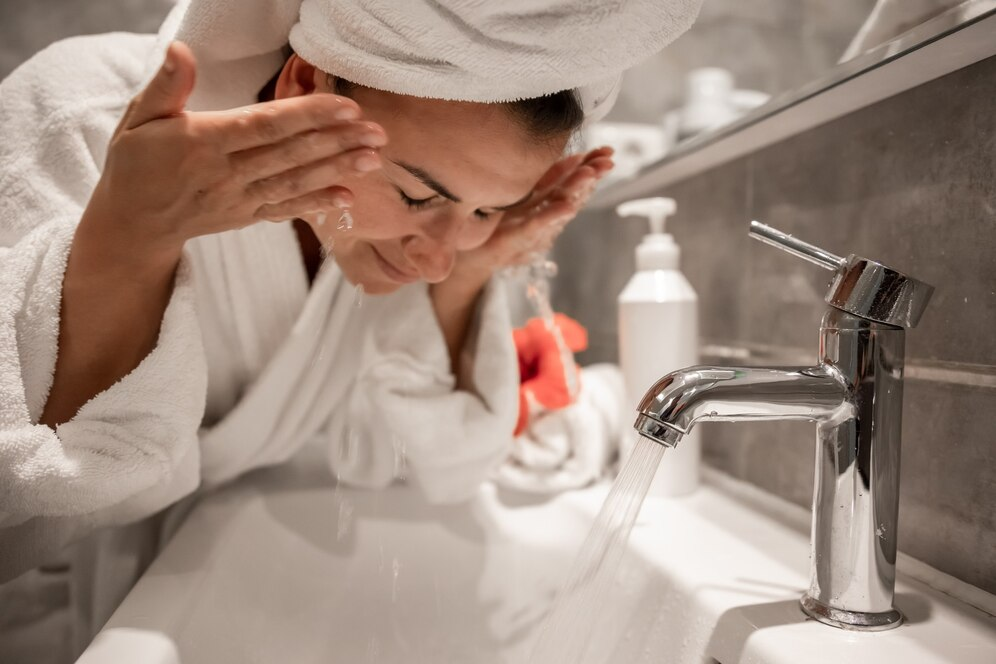
While some products might boast immediate results, true skin health is a marathon, not a sprint. The secret weapon for achieving and maintaining a radiant complexion lies in the power of consistency.
At the heart of consistency lies the power of routine. By incorporating skincare into daily rituals, we establish a rhythm that reinforces the skin’s natural processes and maximizes the efficacy of products.
Hydration is key
The secret to radiant skin often lies in something much simpler and more readily available: hydration. Just like a wilted flower thrives with a good watering, your skin flourishes when properly hydrated.
Our skin functions as a natural barrier, protecting us from the environment while also regulating our body temperature. It achieves this by holding onto moisture within its cells. However, various factors can disrupt this delicate balance, leading to dehydration.
Factors Affecting the Hydration of Skin
External factors: Sun exposure, dry air, hot showers, and pollution all contribute to water loss from the skin.
Lifestyle habits: Alcohol consumption, smoking, and inadequate sleep can also dehydrate the skin.
Natural aging: As we age, our skin’s ability to retain moisture naturally decreases.
Drinking plenty of water is essential. Aim for eight glasses per day, adjusting based on your activity level and climate. Aside from this, using moisturizers is a must. Moisturizers act like a barrier, trapping water within the skin’s cells. Choose a moisturizer formulated for your skin type—lightweight for oily skin and richer for dry skin. Note that hyaluronic acid is a popular ingredient known for its ability to hold onto moisture.
Lifestyle factors impact skin health
Healthy skin is not solely determined by skincare products; lifestyle factors also play a significant role. What you eat, how you sleep, and how you manage stress all play significant roles in the health and appearance of your skin.
Diet
The old adage “you are what you eat” rings especially true when it comes to skin health. Sugary and processed foods can trigger inflammation, leading to breakouts and a dull complexion.
Incorporating nutrient-dense foods such as fruits, vegetables, lean proteins, and omega-3 fatty acids promotes a radiant complexion and helps combat inflammation and oxidative stress, key contributors to aging and skin disorders.
Sleep
While you sleep, your skin repairs and renews itself. Chronic sleep deprivation can lead to dark circles, puffiness, and a prematurely aged appearance.
Prioritize sleep hygiene by establishing a regular sleep schedule. Aim for 7-9 hours of quality sleep.
Stress
High levels of stress can trigger the release of hormones that contribute to acne breakouts and exacerbate other skin conditions.
Stress management techniques such as mindfulness, meditation, deep breathing exercises, and regular physical activity help reduce stress hormones, promote relaxation, and restore balance to the body and skin.
Exercise
Regular physical activity improves circulation, which helps deliver oxygen and nutrients to the skin cells. Exercise can also promote a healthy glow and reduce stress levels.
Exfoliation is essential
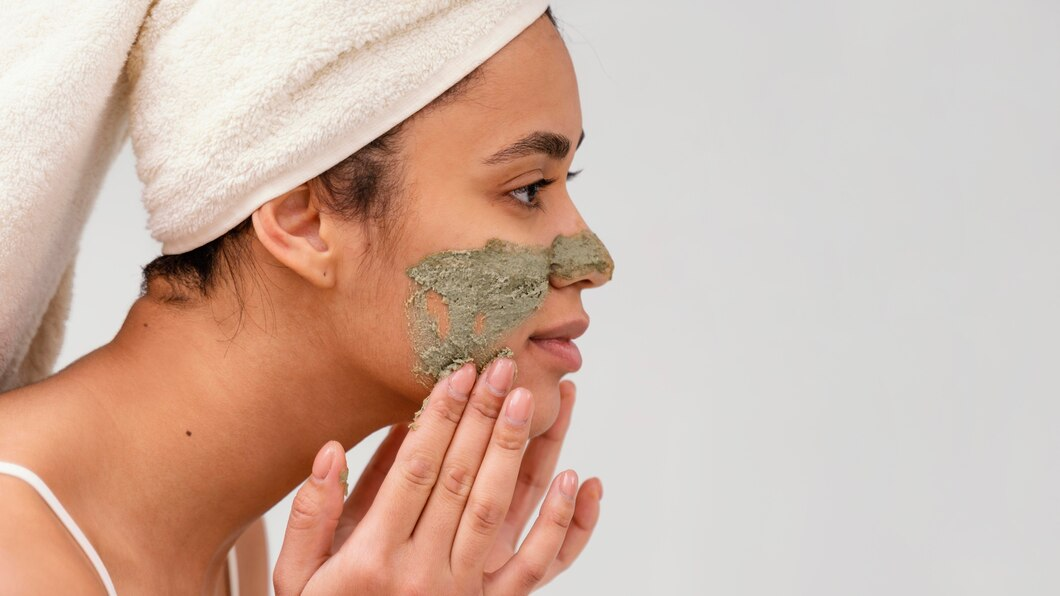
New skin cells generate deep within the layers, pushing older cells towards the surface. Ideally, these dead cells naturally slough, revealing the fresh, radiant skin beneath. However, this process can become sluggish with age, environmental factors, and even improper cleansing. This is where exfoliation steps in – Exfoliating leaves skin smooth and rejuvenated, revealing a radiant complexion beneath the surface.
Two Main Types of Exfoliation
Chemical Exfoliation
This method uses acids to gently dissolve the bonds between dead skin cells, allowing them to be easily removed during cleansing. Chemical exfoliators come in various forms:
Alpha Hydroxy Acids (AHAs): These water-soluble acids, like glycolic acid and lactic acid, are great for all skin types (except very sensitive) and work on the surface of the skin. They can help improve sun damage, wrinkles, and uneven skin tone.
Beta Hydroxy Acids (BHAs): Salicylic acid is the most common BHA. It’s oil-soluble, meaning it can penetrate deeper into pores, making it ideal for oily and acne-prone skin. Salicylic acid helps unclog pores and reduce inflammation.
Physical Exfoliation
Physical exfoliation involves manually scrubbing the skin’s surface to remove dead skin cells and impurities. This method often utilizes abrasive particles or tools to buff away dead skin cells. Common physical exfoliants include:
Exfoliating Scrubs: These products contain granular particles, such as sugar, salt, or finely ground seeds, suspended in a gel or cream base. Gently massage the scrub onto damp skin in circular motions, then rinse thoroughly.
Exfoliating Brushes or Tools: Facial brushes, loofahs, or cleansing devices with soft bristles or textured surfaces can be used to manually exfoliate the skin. Use gentle pressure and circular motions to avoid irritation.
Regular exfoliation helps to slough away complexion-dulling skin cells, revealing a brighter and more radiant skin tone.

Celebrate Life’s Milestones in Camella!
Make unforgettable memories in a Camella home.
Our communities are designed to elevate your living experience.


